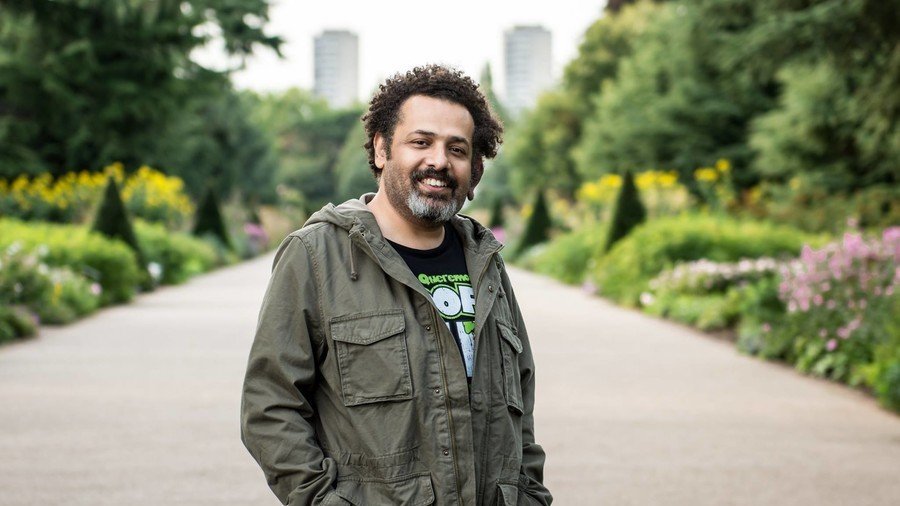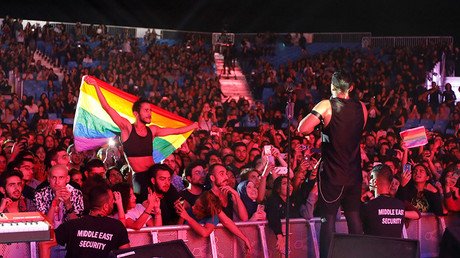Twitter slammed for banning Egyptian journalist’s account

Egyptian journalist Wael Abbas has had his Twitter account suspended, drawing condemnation from activists and journalists and prompting speculation about why he was shut down.
The award-winning journalist is known for his coverage of human rights abuses in Egypt, including his documentation of police brutality.
Twitter removed his account Wednesday and it is still suspended. “What Twitter did is very suspicious,” Abbas told RT. “At first, they suspended the account without giving any reason, and when I appealed, they sent me an email saying the account will not be restored. I appealed it again and they said, ‘no it is not going to be restored.”’
.@twitter and @jack must do better when presented w/evidence of intentional targeting of journalists & activists anywhere of but specifically MENA region where they were glad to emphasize use of Twitter during revolutions & uprisings. 7yrs later: how can you suspend Wael Abbas?!
— Mona Eltahawy (@monaeltahawy) December 18, 2017
As a PhD student working on cyberactivism during Arab Spring, I can't accept @Twitter decision to close @waelabbas account as it is a live archive to the events of the revolution and till today in one of few accounts still documenting human rights abuses in Egypt. Please open it
— شريف عازر (@sherif_azer) December 17, 2017
Remember: Twitter reserves the right to rip away a 10-year-old verified Twitter account without any real justification https://t.co/8Gdl0SURVS
— jillian (@jilliancyork) December 16, 2017
However, following an outpouring of criticism on Twitter by hundreds of activists and journalists, Abbas appealed again. This time, he was told, “Your account is suspended for some time,” Abbas said, “But they didn’t say exactly for how long or until when.”
“Since they didn’t tell me exactly why they suspended me, people are suspecting it was a row between me and Alaa Mubarak, the son of Hussain Mubarak [former Egyptian president ousted in the Arab Spring uprising] that made them take this decision, or reporting from bots run by Mubarak or by the government. No one knows exactly, it’s all speculation,” Abbas said.
Abbas’ supporters have pointed to the importance of his account as a record of the Egyptian revolution in 2011, during which time Abbas gave regular accounts of the situation on the ground.
It is very sad that @Twitter is complicit in shutting down the account of one of Egypt's most prominent activists that's not in jail or in exile. Wael Abbas has documented at least a decade of politics and government abuses. Is there an explanation?
— Wael Eskandar (@weskandar) December 16, 2017
.@Twitter@jack@biz@waelabbas’ account was an important voice in the Jan25 revolution in Egypt.Reinstate his account. Now. https://t.co/fBpYVe3Tgj
— Leah McElrath (@leahmcelrath) December 16, 2017
“Over 250,000 tweets, dozens of thousands of pictures, videos and live streams from the middle of every crisis in Egypt with date stamp on them, reporting on people who got tortured, killed or missing,” Abbas wrote of his tweets. “Live coverage of events as they happened in the street, calls for help or action, calls for doctors or supplies or lawyers, every tweet I tweeted when getting arrested or in custody or when stopped at the airport.”
At the time of writing, his account, with over 350,000 followers, remains closed and Twitter is yet to comment on the issue. RT has contacted Twitter for further information.
Abbas launched his Misr Digital blog in 2004, reporting on events in Egypt that the local press was not covering. He has worked for BBC Arabic, CNN Arabic and was a correspondent for Deutsche Presse-Agentur.
This isn’t the first time his accounts have been shut down. In 2007, his YouTube account was removed and all of the content he had uploaded was removed. Youtube eventually restored his account and many of his videos, explaining his videos lacked context about the violence that was featured.
Another journalist, Amina Ismail, who works for Reuters, also had her Twitter account suspended last week. It has since been restored. In November, blogger Islam al-Refaei was arrested and charged with being a member of a terrorist group and inciting against the state. He was among a number of bloggers and social media activists to be arrested at the time.
Thanks all for your support, I'm back! I still don't know what happened, but twitter said earlier that I violated the impersonation policy.
— Amina Ismail (@AminaIsmail) December 15, 2017
Abbas commented on the arrests at the time, telling the Telegraph: "I noticed that the the continued oppressive campaign by the regime has intimidated many activists, pushing them to turn their posts into private [ones], only seen by their friends and some [have] abandoned politics completely."
Egypt has been accused of cracking down on press freedoms. In May, the government blocked access to 21 news sites, which soon increased to 113 news, political and proxy sites by June, the Association of Freedom of Thought and Expression (AFTE) reports. The affected news sites included Al Jazeera, the Huffington Post’s Arabic edition and Turkey’s Hurriyet, Reuters reported.















